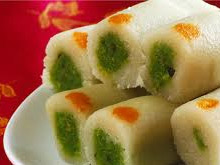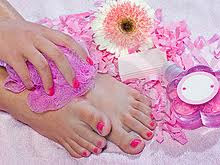Health Topics
-
Healthy Living
-
|
|
November 2009
|
| Diabetes and Winter |
| Dr Subir Ray |
| |
 |
Winter brings festivity and a sense of joy but it should not bring a sense of indiscipline. A minimum discipline in lifestyle without compromising the festive spirit of winter will allow diabetics to enjoy many more winters to come. |
Now-a-days, the theme of diabetes management plan worldwide is empowering patients to take control of their condition and allowing them to lead a life which is as normal as possible. Having a healthy way of life, active participation in the decision making process and compliance are the factors that make a diabetes management plan successful. Here is bursting some common myths on the disease, as the World Diabetes Day is observed on November 14. |
Myth 1:
Diabetes Increases in Winter
Diabetes is not a seasonal disease like flu, though there have been some publications from European countries suggesting more incidence of Type I diabetes in young boys during winter seasons. The reasons are not clear and anyway, there is no such suggestion in India.
Many people with previous pre-diabetic states may be hospitalised or may seek medical attention for respiratory illness (which is slightly more common in winter) - and then be incidentally diagnosed with diabetes.
Myth 2:
Diabetics Shouldn't Eat Festival Mithais
A balanced diet is required for everybody, not just diabetics. While food containing free sugar, very high glycemic index food or very greasy or oily food should be generally avoided; there is no absolute bar on any particular food as long as it is part of a balanced diet. Artificial sweeteners can be used in cakes and sweets for diabetics. There is nothing called special diabetic food for winter, and thus, there is nothing special they need to eat for winter. They should just see that they do not overdo their intake of dry fruits during winter, though. All diabetics are encouraged to enjoy seasonal fruits and vegetables and incorporate them into their diet plan.
Myth 3:
Diabetics Should Give Up Alcohol and Smoking
Not just diabetics, smoking is bad for everyone! All diabetic and non diabetic people should give up smoking.
Regarding alcohol intake, there is no need to give up just because you are a diabetic. However, it is important to drink in moderation. Recommendation in the West is, 21 units/week for men and 14 units/week for women (1 unit=25 ml of spirit or half pint of beer).
Myth 4:
Diabetics Can't Be Active in Sports
Regular exercise is a corner stone of any diabetes management program. Moderate exercise can not only help you to achieve and maintain an ideal body weight but also helps to reduce blood pressure, lower blood cholesterol and improve muscle strength. It also acts as a great stress buster.
Since the heat and humidity go down in winter it is easier to undertake outdoor exercises and sports. There is no sport which a diabetic person cannot participate and excel in. Just remember to hydrate your body properly by drinking enough fluids before and after exercise. Checking blood sugar before, during and after any vigorous or unusual physical activities like games or trekking can keep unwanted hypoglycemia away.
Avoiding Hypoglycemia in Winter
Hypoglycemia (blood glucose lesser than 70 mg/dl) may occasionally trouble you during winter months and during festivities. The reasons are
- Unintentional delay or missing meals (especially shopkeepers, those in the entertainment or hospitality business that have long working hours at this time)
- Unusual physical activities like cleaning the house or shops
- Excessive drinking of alcohol
Usually one may feel shaky, sweaty, confused, hungry, bad tempered or light headed during hypoglycemia or low blood sugar. Take quick acting foods like two or three tea spoons of sugar in tea or water, or two to three glucose tablets, or a glass of fruit juice or a chocolate bar. Once you feel better, eat a proper meal. |
Myth 5:
Diabetics Can't Enjoy Travel and Holidays
Diabetics just need to prepare and plan ahead, to enjoy the winter holidays. These tips could be useful:
- Carry adequate supply of your medicines and equipments e.g. insulin pens, needles, glucometer test strips etc. - they might not be available at your destination place.
- Do not pack insulin in your suitcase in case you are flying – it might just freeze in high altitude! Carry it in hand luggage instead.
- Insulin can be safely kept at room temperature for a month. While travelling on road in a hot country like ours (even in winter) cool boxes or flasks are useful.
- Normally you do not need to declare insulin needles or pens in customs area but it would be wise to carry a letter from your doctor saying that you have diabetes and need to carry insulin, etc. to avoid harassment in unknown countries.
- It is better to carry some kind of diabetes identification badge or card. It may come handy in emergency.
- Eat a normal diet if possible. If you cannot, then have salad, milk, etc
- Drink plenty of water.
- Take sufficient rest.
- Take appropriate medical insurance.
- If you develop any illness while away, you may have to make some adjustment in doses but do not stop your medicine, especially insulin in Type I diabetic patients.
- Frequently monitor blood/urine glucose.
- Seek medical help if illness persists, especially if your condition is worsening, vomiting is not stopping, or if your blood glucose is very high or very low.
 |
Foot Care in Winter
In India, many diabetic persons develop more foot problems like heel cracks and fissures during winter months. Due to damage in the nerves and vascular supply, diabetic feet are more vulnerable and need special care. Knowing what to do and what not to, would go a long way. |
Dos
- Wash feet daily with water at room temperature
- Keep feet clean and dry between the toes
- Inspect your feet daily
- Cut your toe nails straight
- Wear well fitted shoes
- Feel inside your shoes for any sharp objects
Don'ts
- Never walk barefoot
- Avoid foot spas or hot water to clean your feet or hot water bottle under the feet
|
Diabetic Emergency
Diabetes ketoacidosis, a life threatening medical emergency, is very common during the festive season globally, as many young Type I diabetics tend to miss their insulin either by accident or under influence of alcohol or illicit drugs.
Hyper osmolar hyper glycemic state is another emergency condition affecting mostly very elderly diabetics especially during festival time because of lack of adequate manpower in the care homes and/or absence of younger family members at home (away on holidays).
To Avoid Such Emergency
- Do not miss your medications especially insulin.
- Inform your friends and neighbours about your condition.
- Drink plenty of fluids.
- Your friends or family must rush you to the nearest A/E if your urine test is positive for ketones or if you are drowsy or unconscious.
|
|
 |
Dr. Subir Ray is Consultant- Department of Diabetes & Endocrinology at Apollo Gleneagles Hospitals, Kolkata |
|
|